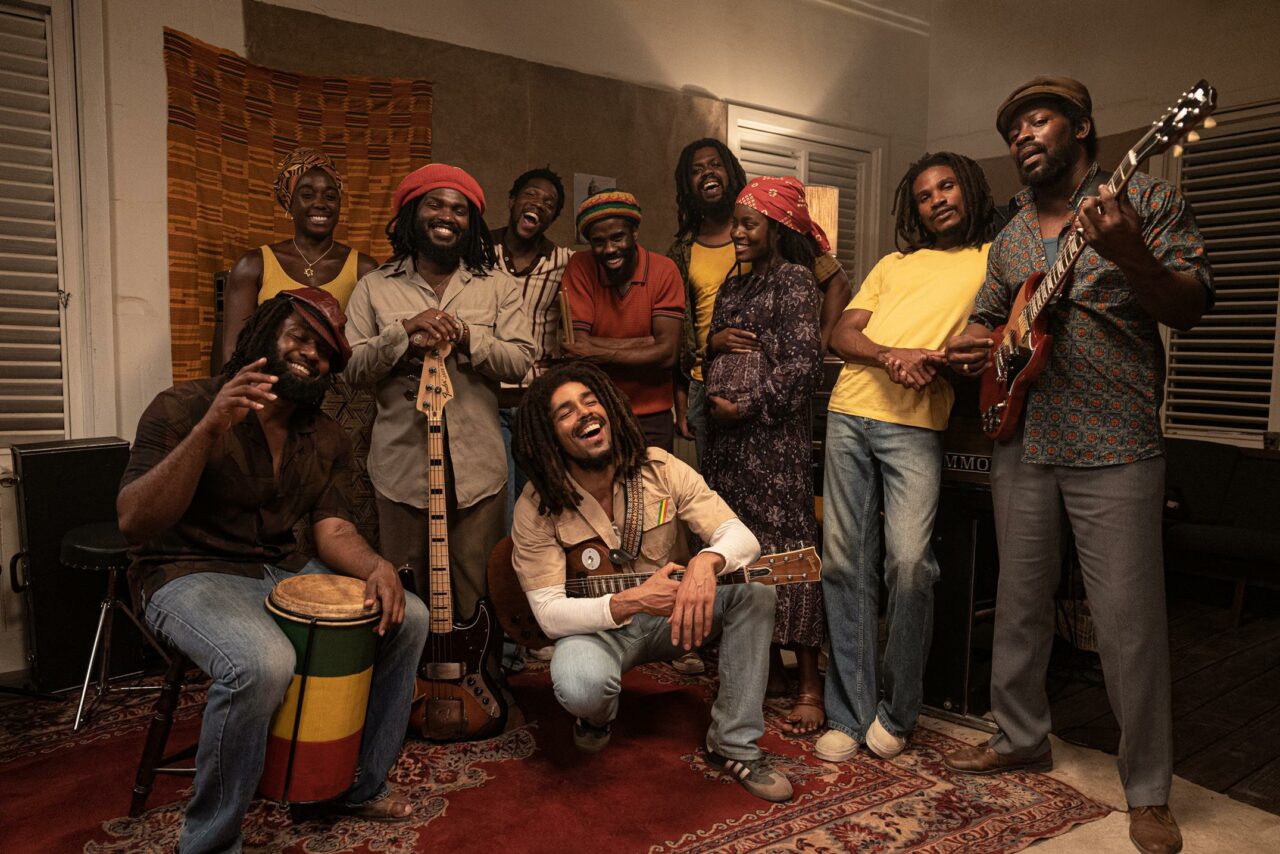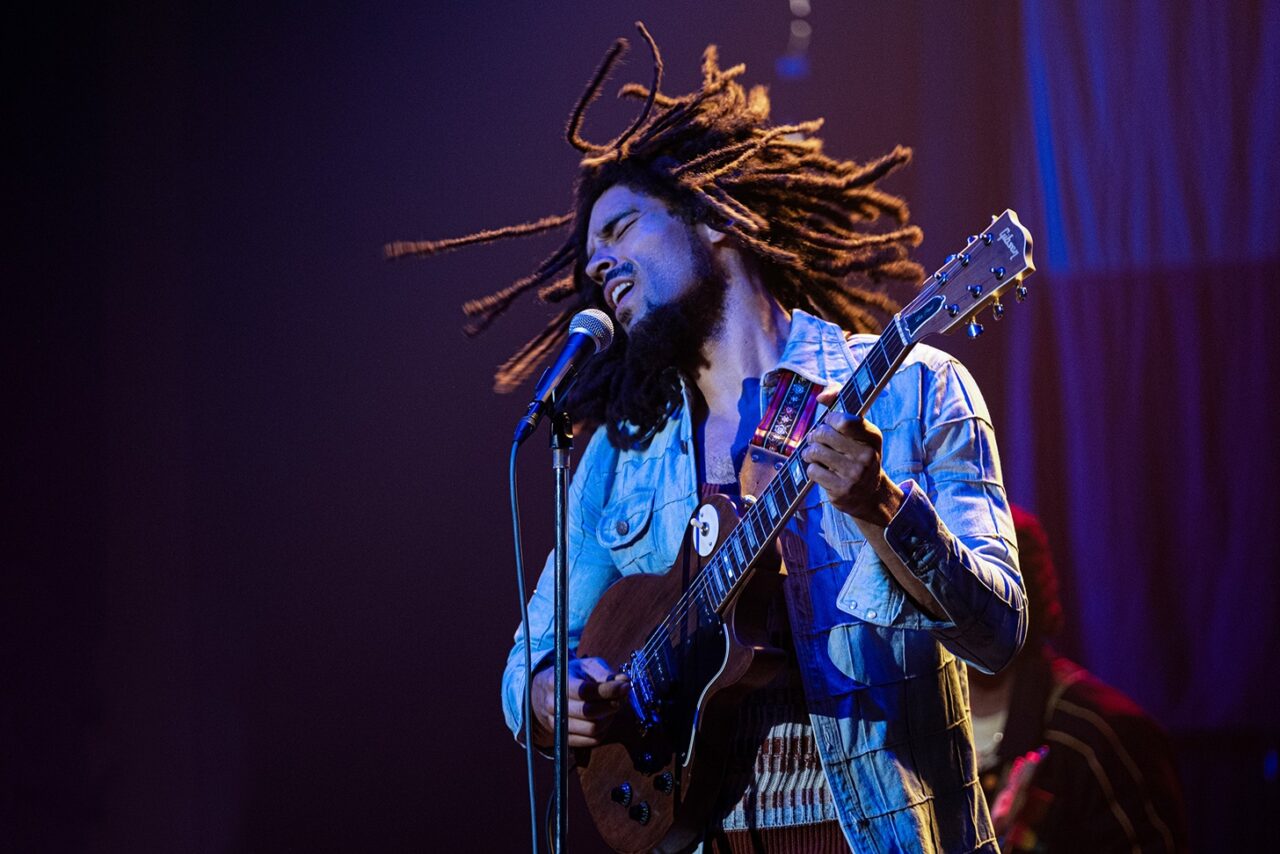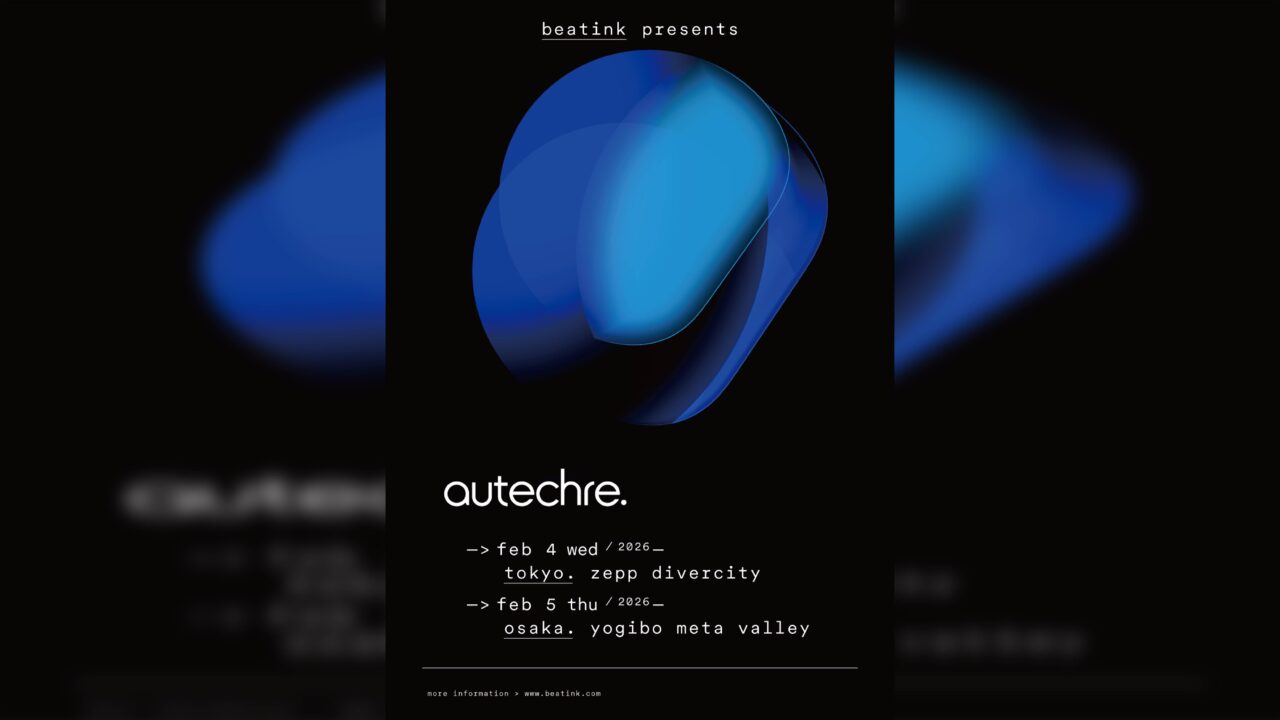The movie ‘Bob Marley: ONE LOVE’ will be released nationwide from May 17th (Friday). Preceding its release in Japan, it achieved the top spot in the US box office for two consecutive weeks after its premiere on February 14, 2024. In the UK and France, it surpassed the opening day box office revenue of ‘Bohemian Rhapsody,’ released in 2018. Additionally, in Bob Marley’s home country of Jamaica, it set a record for the highest opening day box office revenue in history, generating significant excitement worldwide.
Bob Marley, hailing from Jamaica, sold over 75 million albums worldwide and received numerous accolades posthumously, including the Grammy Lifetime Achievement Award in 2001 and induction into the Hollywood Walk of Fame. Particularly, the song “One Love/People Get Ready” by Bob Marley & The Wailers, released as a single in 1984 following its inclusion in the 1977 album “Exodus,” is widely recognized even by those who may not know its name, having likely heard it in cafes or bars. This film focuses on the period when such representative works of Bob Marley were created, with his wife Rita, son Ziggy, and daughter Cedella participating as producers to supervise the production.
In “One Love/People Get Ready,” Bob Marley sings a peaceful message, “One Love / One Heart / Let’s get together and feel alright,” yet during the same period, Jamaica faced domestic turmoil with two major political parties in conflict, nearly on the brink of civil war. Despite being nearly exploited for propaganda due to his popularity and facing armed attacks, Bob Marley was driven by his “compassion for others,” as described by his son Ziggy Marley. Through hearing his son inherit Bob Marley’s teachings, what became apparent was the philosophy of “ONE LOVE,” essential in an era of intolerance and division.
This article contains descriptions related to the content of the film.
INDEX
The Message “The Legend Of Reggae” Bob Marley Risking his Life to Convey
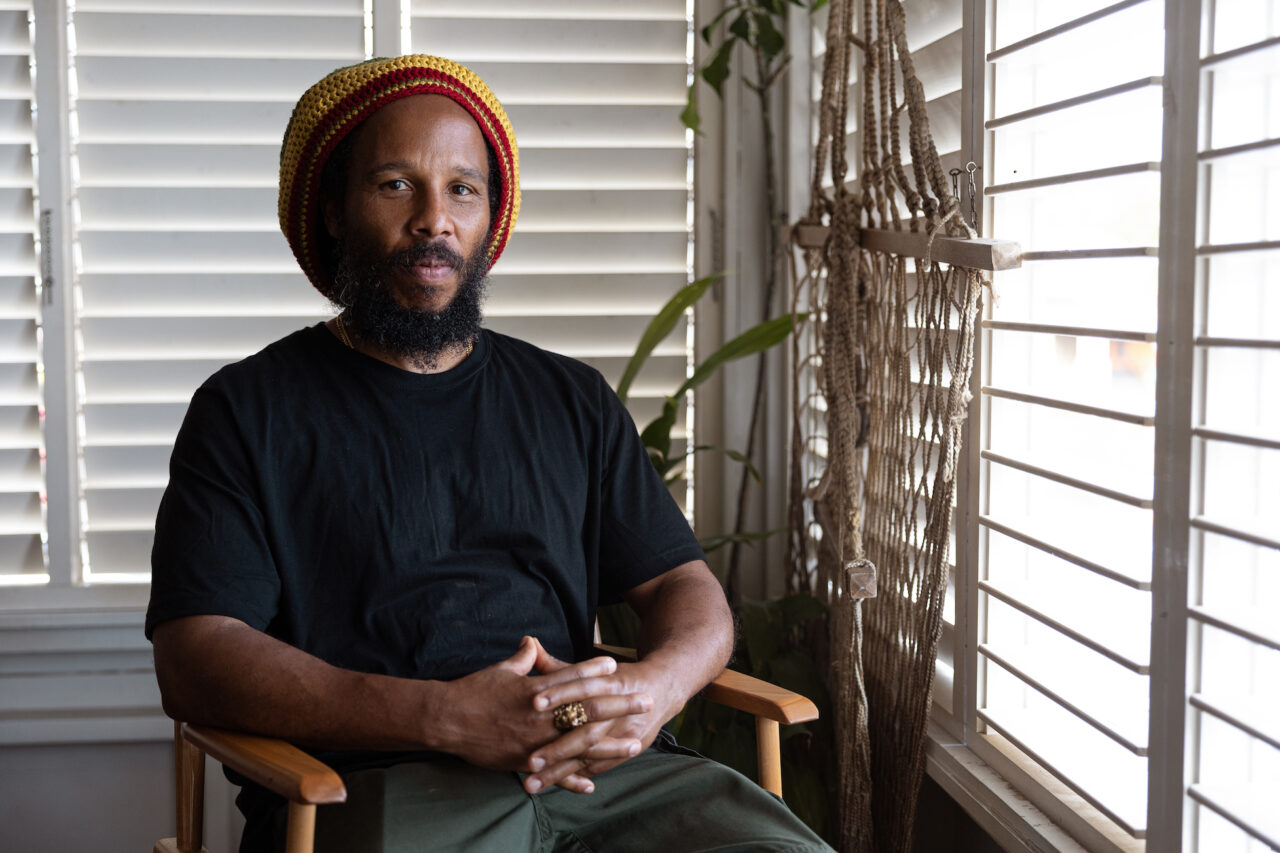
Ziggy Marley
Born David Marley in 1968 as the eldest son of Bob Marley and his wife Rita. From a young age, he learned various instruments such as guitar and drums from his father, and by the age of 10, he was participating in live performances and sessions with Bob Marley & The Wailers. The name Ziggy was a nickname given by his idol, David Bowie. In 1988, he released the acclaimed album “Conscious Party,” produced by Chris Frantz of Talking Heads, among others. The following year, he won a Grammy Award for “One Bright Day.” After concluding his activities with Ziggy Marley & The Melody Makers in 2003, he began releasing solo works. He is also involved in activities with the non-profit organization U.R.G.E. (Unlimited Resources Giving Enlightenment).
-First of all, what made you decide to make a film about Bob Marley?
Ziggy Marley: I felt that it was the appropriate time to make a movie about Bob Marley. While there have been films about him before, I’ve always felt a responsibility, as his family and his son, to create an “official” autobiographical work about my father, Bob Marley. I’ve been feeling this role for about five years now, and we began production by entering the studio.
In this film, there are various layers including his life as an artist and as a human being, but the core message is “unity.” It’s the message that Bob Marley sought to convey throughout his lifetime, and it’s also the message of this film.
-The message of “LOVE & PEACE” is evident, but it’s also a story of how the voice of one person from a small Caribbean nation changed the world. It conveys the message that “nothing is impossible.”
Ziggy Marley: This film carries numerous messages and I believe its interpretation varies depending on the viewer. It’s spiritual and at the same time, a pure love story. While there are many ways to learn about Bob Marley’s upbringing and his achievements as an artist, what this film portrays is the struggles of Bob Marley as an individual and the love story with my mother, Rita Anderson. It’s a simple romance film and at the same time, a movie conveying the message of “LOVE & PEACE.” What one takes away from it depends entirely on the audience.
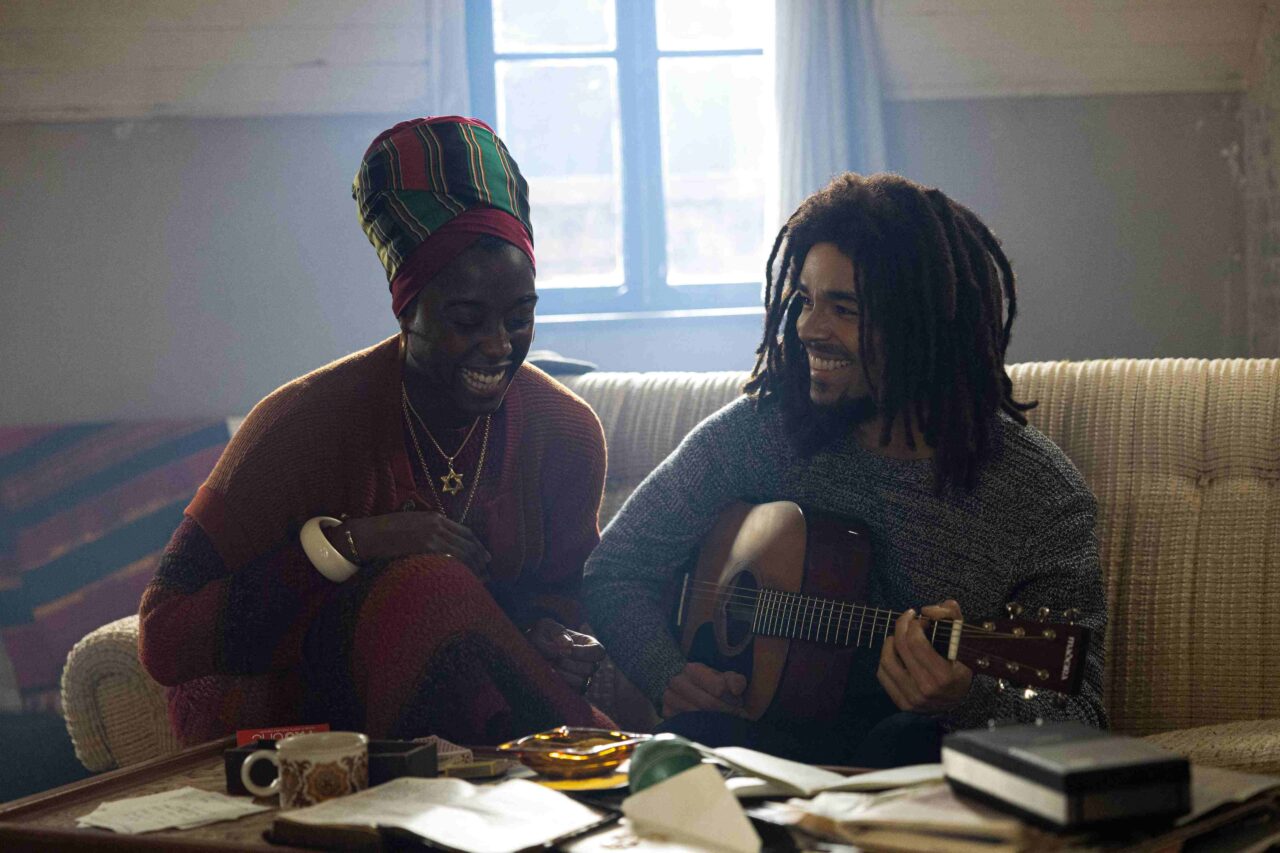
– This film takes a different approach from autobiographical films like “Bohemian Rhapsody,” focusing on conveying the message of “LOVE & PEACE” through Bob Marley’s life.
Ziggy Marley: That’s right. It was most important to convey the message. That’s why we focused on the period from the shooting incident involving Bob Marley in 1976 to his life in London and the “One Love Peace Concert” held in 1978. In just two years, he underwent significant changes in his life’s purpose and values. And his very existence became a message of “LOVE & PEACE.” We wanted to create a film that depicted such tumultuous times.
-The scene where Bob Marley played his guitar around the campfire with his family was striking. I believe that music being a non-verbal culture also contributed to Bob Marley’s worldwide popularity, but what was music to him as a presence?
Ziggy Marley: For Bob Marley, music was life itself. He never parted with his guitar, playing it as naturally as breathing. He also loved soccer, so he was always immersed in guitar and soccer. Both my children and I have been influenced by him, and we love music and soccer.

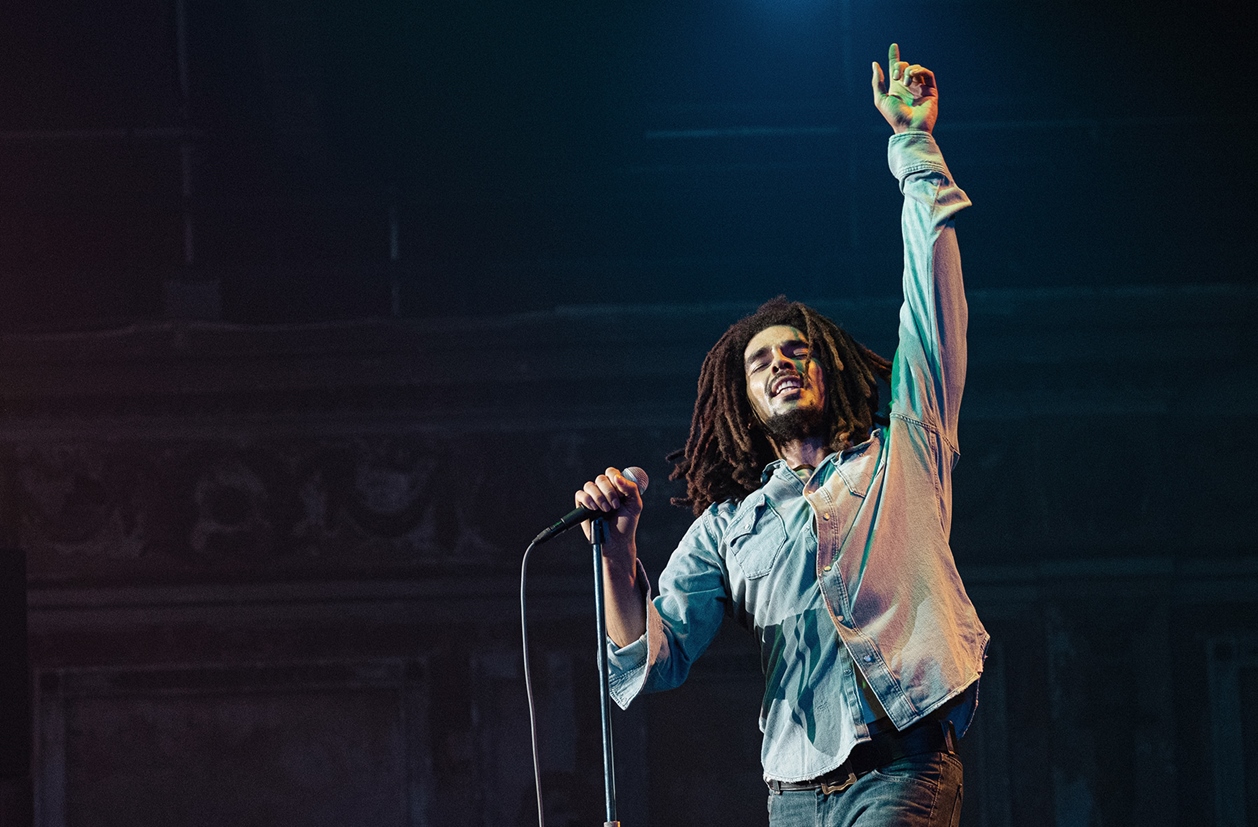
INDEX
Living for Others: Bob Marley’s Legacy
– What struck me was the moment when Bob Marley used the word “Beneficial,” as I had previously only known him through his music. It was enlightening to hear him prioritize the welfare of his family and others over himself. How would you characterize Bob Marley, considering both his role as a father and an artist, upon contemplation?
Ziggy Marley: He was always thinking of others, caring for them more than himself. He didn’t live for himself; he lived for others. How many people can truly declare that they live for others without considering themselves? This is something I learned from my father as his son.
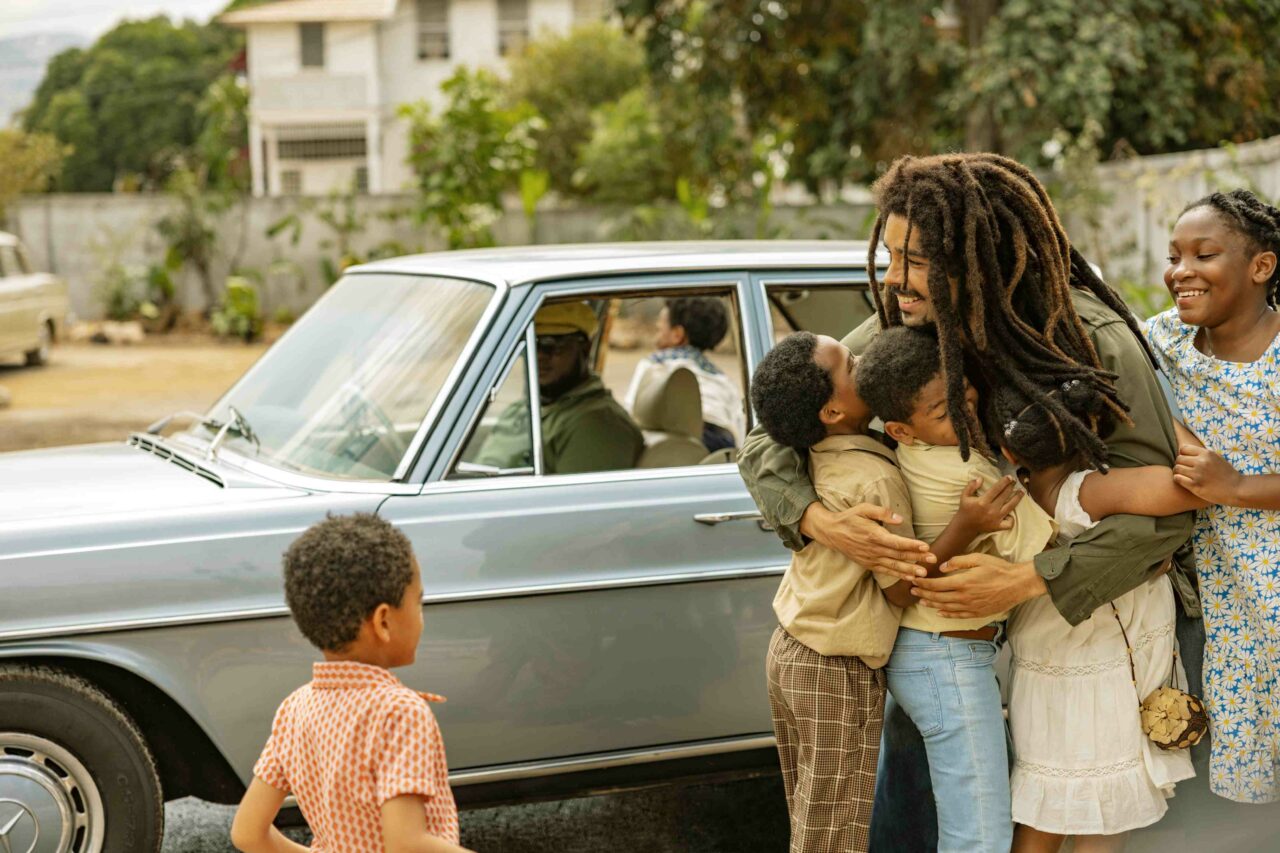
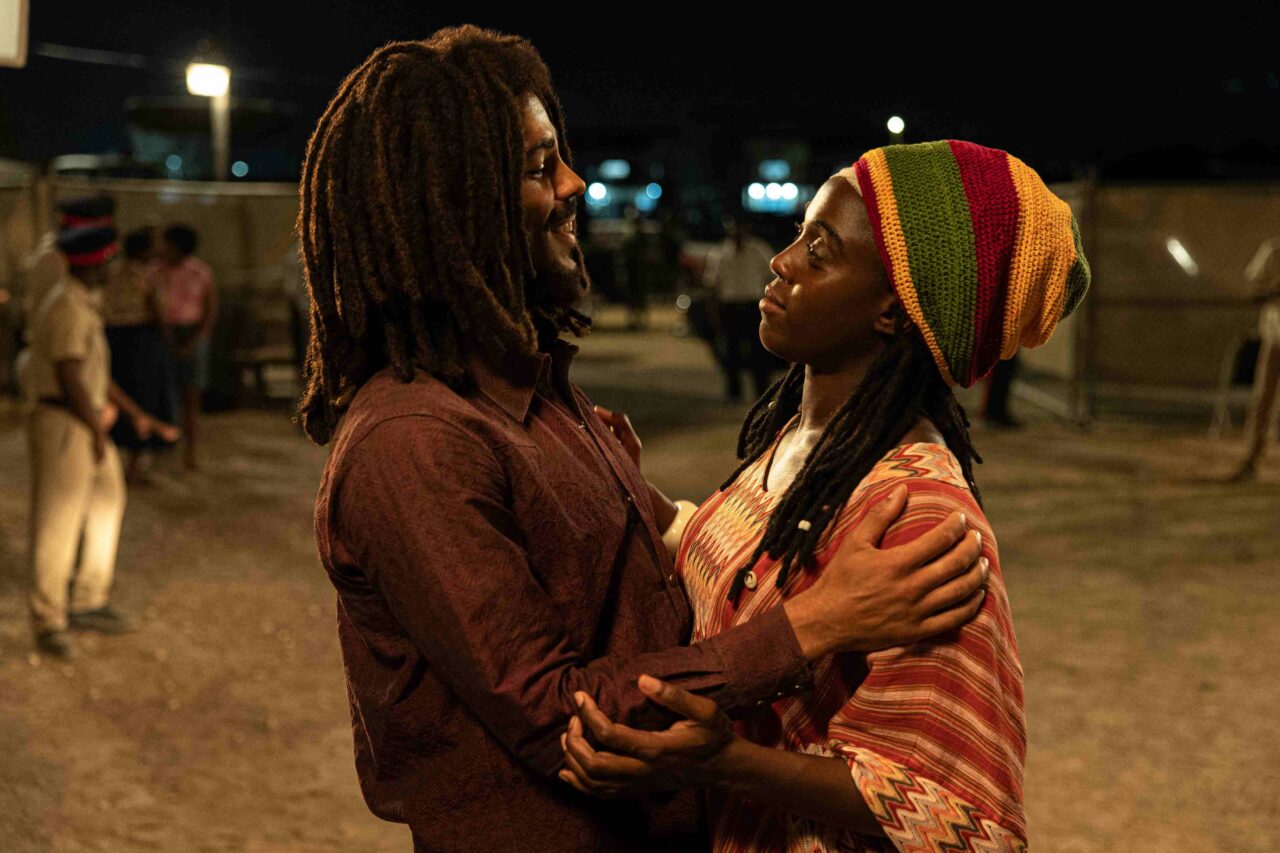
– Do you also consciously strive to “live for others” like him?
Ziggy Marley: I’m aware of it, and I respect it, but I’m not quite at his level [laughs]. I might not be able to go to the extremes like him. But Bob Marley was a remarkable figure who tried to give more than he could. That’s why even after his death, his messages continue to have an impact. I’m proud to be able to carry on my father’s message for future generations.
-Why do you think Bob Marley was such a compassionate person?
Ziggy Marley: He realized that living for others was the purpose of his life.” He had reached a level of consciousness that was beyond ordinary human understanding. Life is a continuous process of evolution as long as we’re alive. I’m the same. In his short life of 36 years, there might not have been time to wait idly. While we may not know the exact changes in his mindset over time, I believe he had reached a state of enlightenment early on.
